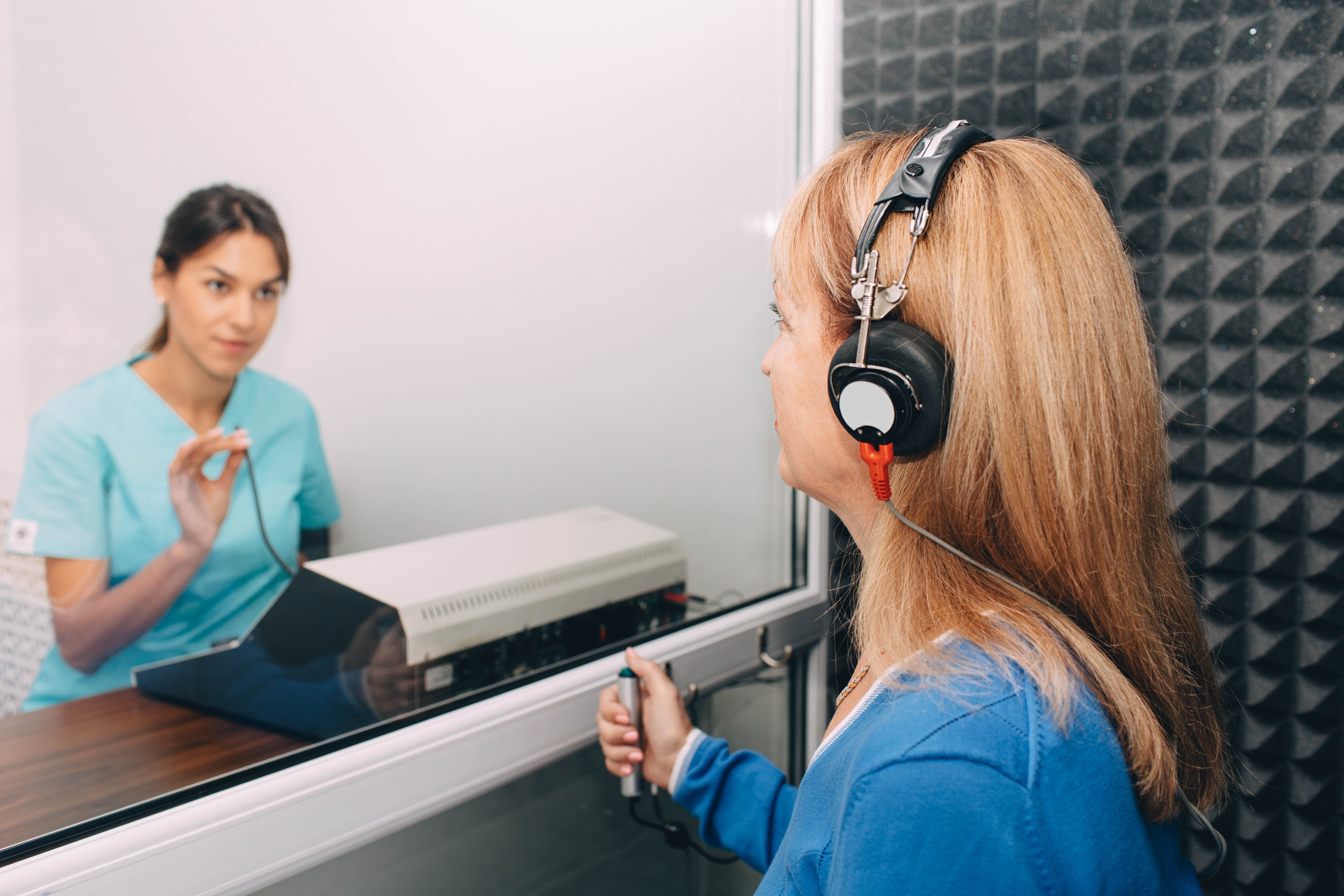Why You Shouldn’t Put Off Getting Hearing Aids

At Ace Audiology, we understand that life can get busy, and it’s easy to put off addressing hearing impairment, a natural part of the aging process. However, we urge you not to delay getting hearing aids any longer. Your hearing health is a crucial aspect of your overall well-being, and taking action sooner rather than later can have a profound impact on your quality of life, especially in mitigating age-related hearing loss.
If you are experiencing hearing loss, don’t wait any longer to get help. Schedule an appointment or consultation with one of our experienced hearing aid audiologists today to learn more about your hearing loss and how hearing aids can help you rediscover the joy of clear and vibrant hearing.
The Consequences of Untreated Hearing Loss
Untreated hearing loss can have a significant impact on your overall health and well-being. It can make it difficult to communicate with others, participate in social activities, and succeed at work. It can also lead to social isolation, depression, and cognitive decline.
Impact on Person-to-person Conversations
Hearing loss can make it difficult to hear and understand speech whether that’s in person or via phone calls, especially with loud background noise present. This can lead to misunderstandings and frustration, both for you and the people you are communicating with.
Social Isolation
Hearing loss can make it difficult for both you and your family to participate in social activities, such as conversations, meetings, and parties. This can lead to social isolation and loneliness, emphasising the importance of proactive hearing healthcare to address any trouble hearing.
Cognitive Decline
Untreated hearing loss can significantly impact cognitive decline, and there is a well-documented relationship between the two. Studies have shown that hearing loss is associated with an increased risk of cognitive decline, such as dementia and Alzheimer’s disease. One way that hearing loss can lead to cognitive decline is by reducing the amount of auditory stimulation that the brain receives. This can lead to changes in the structure and function of the brain, including the hippocampus, which is involved in memory and learning.
Increase In Stress and Emotional Effects
When people have difficulty hearing, they may feel disconnected from the world around them which can lead to feelings of frustration and helplessness. These emotions can lead to increased stress, anxiety, and depression.
If you are experiencing hearing loss, it is important to seek treatment as soon as possible. Treatment options, such as hearing aids, can help to improve your communication skills and reduce the negative emotional effects of hearing loss.
Hearing Aid Stigma
People with hearing loss tend to delay seeking treatment or undergoing a hearing test because of the stigma associated with hearing aids and hearing loss. This stigma is often rooted in the stereotype that hearing aids are only for old people, which is inaccurate, as hearing loss can affect people of all ages.
Other factors that contribute to hearing aid stigma include:
- A misconception that hearing aids are uncomfortable and bulky: Modern hearing aids are small and discreet, and they offer a variety of features to make them comfortable to wear.
- A fear that hearing aids will be noticeable and make the wearer stand out: Hearing aids are now more than ever designed to be invisible in the ear.
If you are experiencing hearing loss, it is important to know that you are not alone. There are millions of people around the world who wear hearing aids, and they live full and productive lives. Don’t let hearing aid stigma prevent you from seeking the treatment you need.
Treating Hearing Loss
Hearing health is incredibly important and for some people that means wearing hearing aids. There are different types of hearing aids that a hearing healthcare professional may make you aware of. These can include:
- Behind-The-Ear (BTE): BTE hearing aids are worn behind or on top of the ear. They have a plastic case that houses the electronics, with a tube or wire connecting to an earmold or earpiece inside the ear canal.BTEs are suitable for a wide range of hearing loss, from mild to profound.
- Receiver-in-Canal (RIC) or Receiver-in-the-ear (RITE): RIC or RITE hearing aids are similar to BTEs but have a smaller, more discreet design. The receiver is placed inside the ear canal and connected to the main body of the hearing aid by a thin wire. RICs are suitable for mild to moderate hearing loss and provide good sound quality.
- In-the-Ear (ITE): ITE hearing aids are custom-made to fit entirely in the ear canal or fill the outer ear’s bowl-shaped area. They are visible but less so than BTEs. ITEs are suitable for mild to severe hearing loss.
Each type of hearing aid has its advantages and limitations, so the choice depends on factors like the degree of hearing loss, lifestyle, aesthetic preferences, and individual needs. For more hearing aid styles, please consult with one of our expert staff at Ace Audiology.
Book an Appointment To Improve Your Hearing Health
Wearing a hearing aid is now a common and accepted part of hearing healthcare. To find the perfect hearing aid for your needs and degree of hearing loss, schedule a consultation with our friendly audiologists at either our Ace Audiology Bulleen or Ivanhoe clinic today.
For more information on our contact details, please visit our website.
